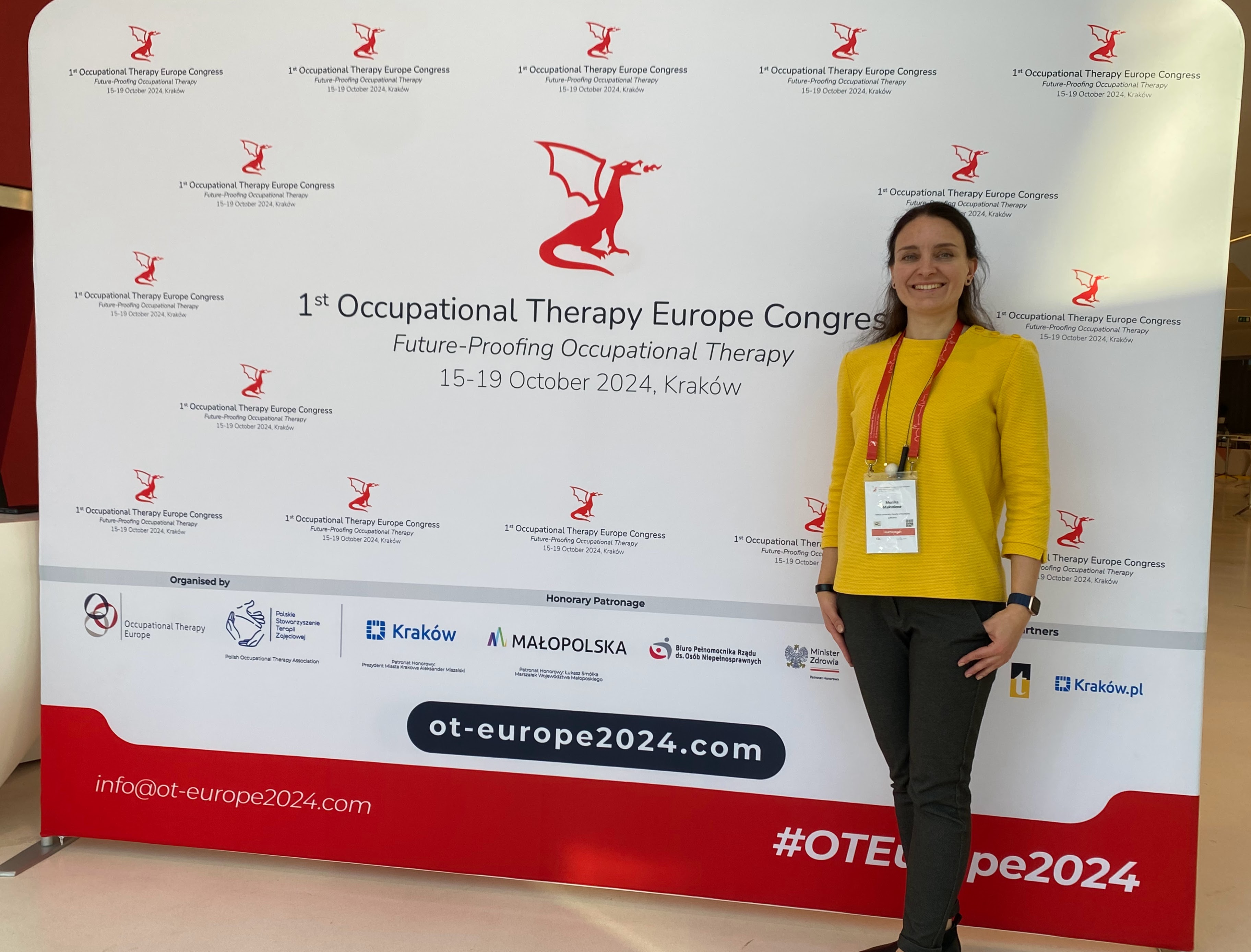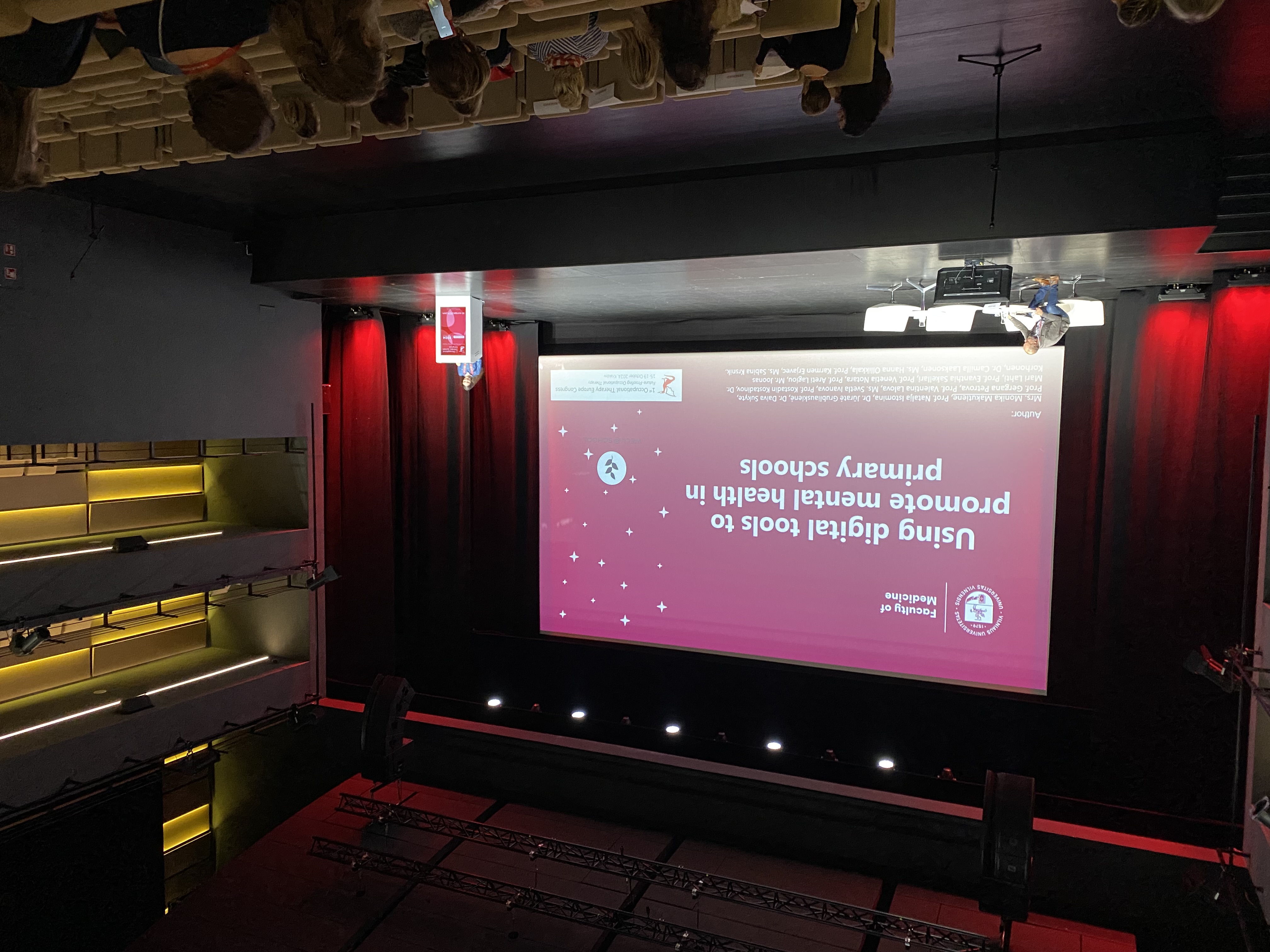 PhD student Monika Makutienė / Personal archive
PhD student Monika Makutienė / Personal archive
From October 15 to 19 this year, the 1st European Occupational Therapy Congress took place in Kraków, Poland. The event was organized by the Polish Occupational Therapy Association in collaboration with the European Network of Occupational Therapy in Higher Education (ENOTHE), the Council of Occupational Therapists for European Countries (COTEC), and the Research Organization in Occupational Therapy and Occupational Science (ROTOS), bringing together the three largest occupational therapy organizations in Europe.
Among the participants was Monika Makutienė, a PhD student and occupational therapist from the Department of Public Health at the Faculty of Medicine at Vilnius University. During the event, she presented an oral report titled "The Use of Digital Tools to Improve Mental Health in Primary Schools," which garnered considerable interest. She also attended seminars, gained new insights, and had the opportunity to expand her professional network.
The congress aimed to unite occupational therapy specialists to increase the profession's visibility and value throughout Europe. The primary focus was on the future of occupational therapy, with discussions on innovative practices and the need for collaboration in a rapidly changing environment.
 1st European Occupational Therapy Congress / Personal archive
1st European Occupational Therapy Congress / Personal archive
More than 1,000 participants, including researchers, practitioners, educators, and students, attended the event. A total of 137 oral presentations and 214 poster presentations were delivered. Additionally, seminars were held by prominent speakers, such as Assoc. Prof. Dr. Agnieszka Smrokowska-Reichmann from the Institute of Applied Sciences in Kraków, Dr. Eric Asaba from the Karolinska Institute in Sweden, and Prof. Anita Atwal, an occupational therapist and healthcare professional specializing in interdisciplinary research.
"During various seminars and discussions with representatives from different countries on the trends, challenges, and opportunities in occupational therapy, it became clear that the situation is very similar across Europe, including in Lithuania. Challenges like declining student numbers, limited awareness of occupational therapy, narrow perceptions of the profession, constraints on interdisciplinary collaboration, and the limited role of occupational therapists in social settings are issues faced by many occupational therapy communities. However, the unity and courage of occupational therapists—scientists, practitioners, and educators—can inspire others to overcome these challenges. The 1st European Occupational Therapy Congress brought together a vast number of specialists not only from Europe but from around the world. Attending such an event allows us to broaden our knowledge, gain new experiences, make new connections, and gain perspective on global trends in occupational therapy, while also reflecting on the situation in Lithuania within this global context," shared PhD student Monika Makutienė after the congress.
